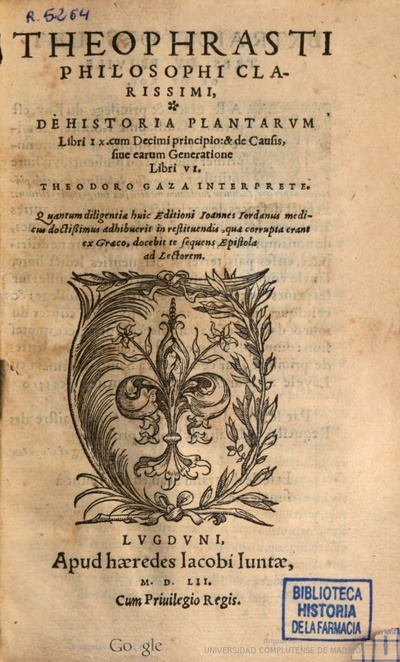Caliphony and Special Diets in Greek and Roman Antiquity

The practice of consuming filters to improve the voice can be traced back to the end of the 5th century BC. According to the writer Antiphonus Ramnousios (480 BC - 410 BC), a court discussed a case concerning a sponsor who was accused of poisoning to death a member of his choir by giving him a potion that was presented as beneficial to the voice. There is no information on its ingredients. It is only in the 4th century BC that we can first read a more detailed recipe for voice practitioners, consisting of the juice of a plant called panacia (Theophrastus, On Plant History, 9.9.2), which appears to be the plant Ferulago galbanifera produced by Galbano. Some important sources testify that the artists had the habit of not consuming food and alcohol both during rehearsals and performances. Plato, speaking of choir members entering the stage without having eaten, exhausted from fatigue, says: "it would be much more embarrassing for people of this age (elderly) if they were forced to sing, just like the dancers who compete for victory, having done vocal exercises, lean and hungry". Similar information is given by Fake-Aristotle, who, speaking of professional voice artists, states that a stomach full of food and drink does not help with pronunciation and can cause a broken voice. Moreover, "in people who have eaten a lot, as well as in those who are drunk, it is natural for their voice to be shaky."Addressing the habits of the Athenians in the Classical period, Plutarch refers to the sponsors who, during the training of their choirs for competitions, provided them with special meals needed to improve their voices: soft lettuce, garlic cloves and bone marrow throughout the period, while they worked on their voices and allowed themselves to live comfortably. The eel is mentioned in a piece by the Athenian comic poet Clearchus of Athens (4th century BC) where the famous guitarist Amoibius states that the fat of the eel "clears" and "nourishes" the voice. A pseudo-Aristotle quote further informs us of the beneficial properties of leeks and garlic for the voice. Similarly, we know that the Emperor Nero used to consume leeks cooked in oil on a set day each month. The beneficial properties of garlic, raw or cooked, are mentioned in many other texts, e.g. in a collection of health advice entitled Praecepta salubria (1st century BC), where it is written that garlic makes the voice 'bright'. It is somewhat difficult to understand the logic behind these dietary choices. However, we can observe that, in most cases, the prescribed foods were a sign of appreciation of austerity and consisted of ingredients that were easily digestible (filters ensure rapid absorption). In addition to the nutritional benefits, garlic is believed to smooth the throat and brighten the voice and leek is supposed to have expectorant properties. Similarly, certain foods and drinks were thought to be harmful. Examples include a certain variety of mussels believed to cause throat inflammation, fruits, artichokes and alcohol. 
In early Byzantine medical treatments, the frequency with which the potions for the treatment of the voice appear increases considerably. This is due to the fascination that the medical theories of the ancient Greeks held for Byzantine writers. Aetius of Amidinos in his work "Bibliia Medicina Ekkaideka" suggested that singers, actors and heralds (shouters) whose voices had been broken after competitions should bathe in fresh water and drink a potion containing honey and leeks. Paul of Aegina (7th century) describes the preparation of a potion for a broken voice that can also be used by voice practitioners (phonascists). Its basic ingredients are, once again, leeks and honey. The firm belief that a certain diet can help the voice survived in the later Western tradition, as shown by Isidore of Seville, who recommends leeks as an expectorant. So great was the influence of medical texts that mentioned various potions for the voice that the word phonaskus (vocal coach) survives into very late Latin as fonasgum (neutral), a term meaning a potion that can make it easier for poets to recite: dicitur quaedam potio, quautebantur poetae cum recitare habebant (said to be a kind of drink used by poets when they are about to recite) (Glossarium mediae et infimae latinitatis, entry "fonasgum") |

